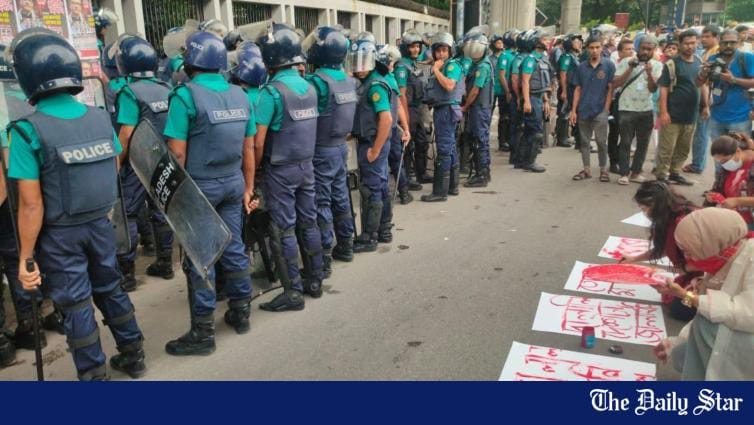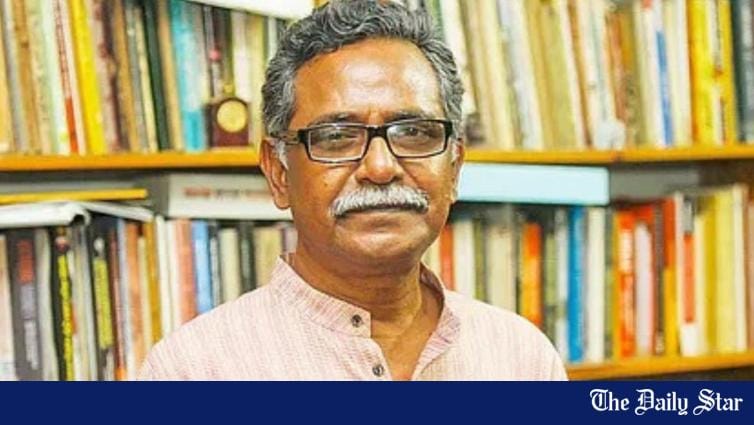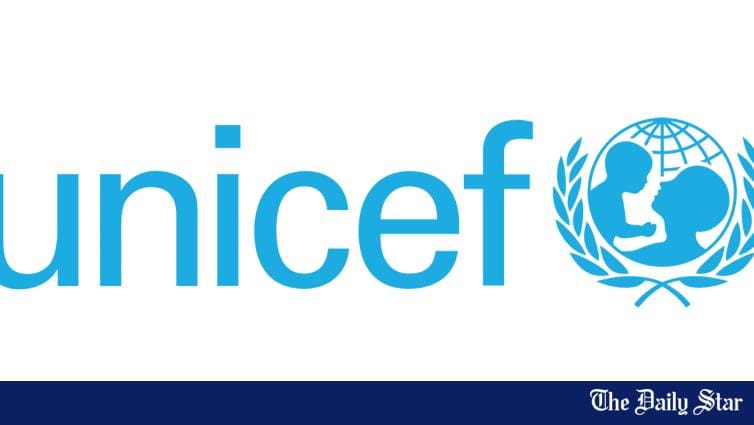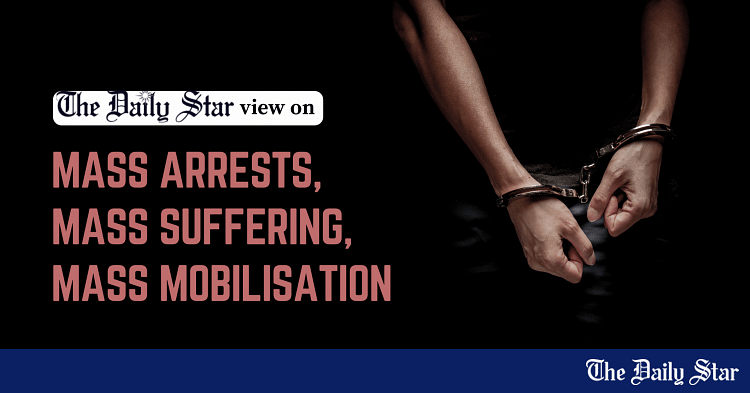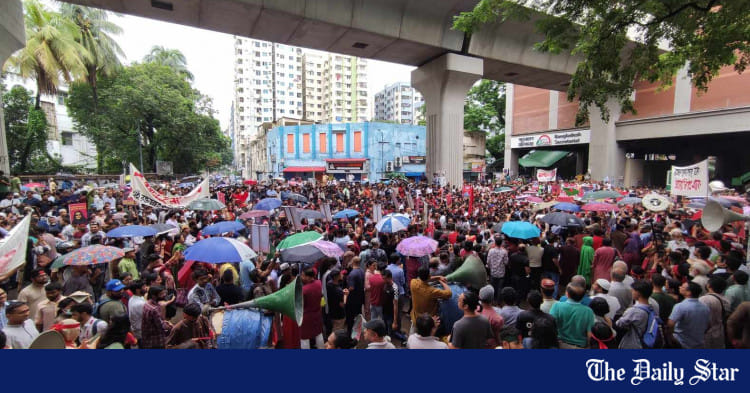Saif
Senior Operative
- 13,277
- 7,271
- Origin

- Axis Group

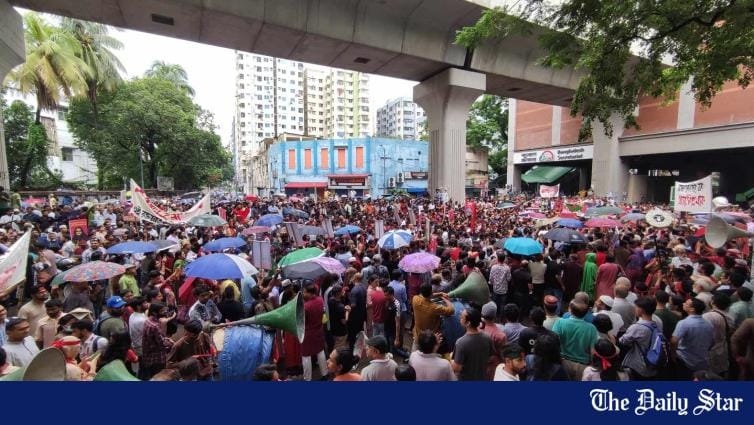
Non-cooperation movement from Sunday
Protesters to hold demos across country Saturday
Non-cooperation movement from Sunday
Protesters to hold demos across country Saturday

Photo: Rashed Shumon/Star
The organizers of Anti-discriminatory Student Movement, who spearheaded the quota reform protests, yesterday said they will go for a countrywide non-cooperation movement from Sunday, protesting the recent killings and to press home their nine-point demand.
They will also stage demonstrations across the country today (Saturday).
Mahin Sarker, one of the coordinators of the platform, announced the programme through a Whatsapp message around 8:00pm.
The platform urged all to join their programmes to make it successful.
Minutes after uploading the statement, Mahin said they will make some corrections to the statement. As they did not make any corrections, a correspondent of this newspaper contacted him around 11:50pm. Mahin said the statement stands as it is and they will not make any corrections.
Asif Mahmud, one of six coordinators of the quota reform protests who was in the custody of Detective Branch, shared a message identical to Mahin's.
Meanwhile, Abdul Hannan, another coordinator, in a Facebook live said on behalf of the Anti-discriminatory Student Movement, they are declaring to hold demonstrations across the country today (Saturday).
"An all-out non-cooperation movement will be observed from Sunday. He said no taxes will be paid to this government. No utility bills will be paid. The secretariat and all government and private offices will be closed, no vehicle will be allowed to enter Gono Bhaban or Bangabhaban.
"No one will cooperate with this government."
He urged all to carry out these programmes so that this government can no longer function.
Contacted, Hannan also confirmed their programmes for today and tomorrow.
Their nine-point demand includes an apology from Prime Minister Sheikh Hasina, and resignations of Home Minister Asaduzzaman Khan, Road Transport and Bridges Minister Obaidul Quader, Education Minister Mohibul Hasan Chowdhoury, Law Minister Anisul Huq, State Minister for Information and Broadcasting Mohammad Ali Arafat, and State Minister for Post, Telecommunications, and Information Technology Zunaid Ahmed Palak.
Protesters to hold demos across country Saturday
Photo: Rashed Shumon/Star
The organizers of Anti-discriminatory Student Movement, who spearheaded the quota reform protests, yesterday said they will go for a countrywide non-cooperation movement from Sunday, protesting the recent killings and to press home their nine-point demand.
They will also stage demonstrations across the country today (Saturday).
Mahin Sarker, one of the coordinators of the platform, announced the programme through a Whatsapp message around 8:00pm.
The platform urged all to join their programmes to make it successful.
Minutes after uploading the statement, Mahin said they will make some corrections to the statement. As they did not make any corrections, a correspondent of this newspaper contacted him around 11:50pm. Mahin said the statement stands as it is and they will not make any corrections.
Asif Mahmud, one of six coordinators of the quota reform protests who was in the custody of Detective Branch, shared a message identical to Mahin's.
Meanwhile, Abdul Hannan, another coordinator, in a Facebook live said on behalf of the Anti-discriminatory Student Movement, they are declaring to hold demonstrations across the country today (Saturday).
"An all-out non-cooperation movement will be observed from Sunday. He said no taxes will be paid to this government. No utility bills will be paid. The secretariat and all government and private offices will be closed, no vehicle will be allowed to enter Gono Bhaban or Bangabhaban.
"No one will cooperate with this government."
He urged all to carry out these programmes so that this government can no longer function.
Contacted, Hannan also confirmed their programmes for today and tomorrow.
Their nine-point demand includes an apology from Prime Minister Sheikh Hasina, and resignations of Home Minister Asaduzzaman Khan, Road Transport and Bridges Minister Obaidul Quader, Education Minister Mohibul Hasan Chowdhoury, Law Minister Anisul Huq, State Minister for Information and Broadcasting Mohammad Ali Arafat, and State Minister for Post, Telecommunications, and Information Technology Zunaid Ahmed Palak.

